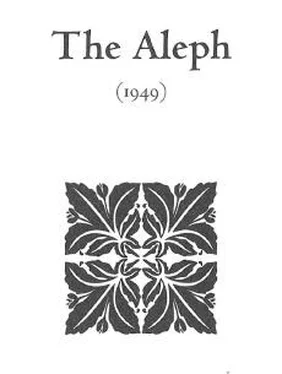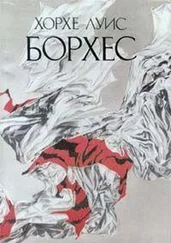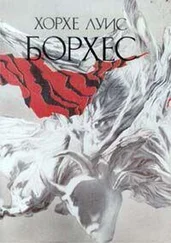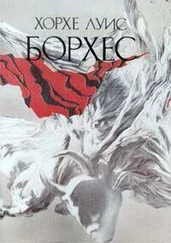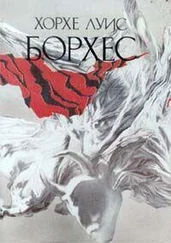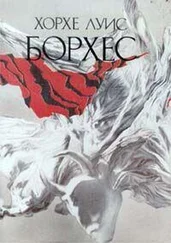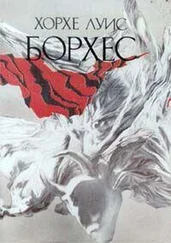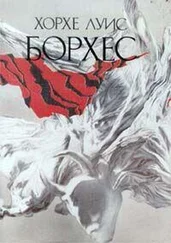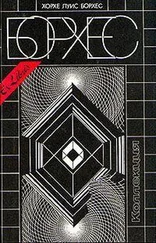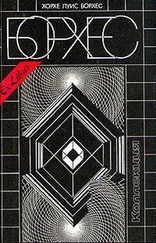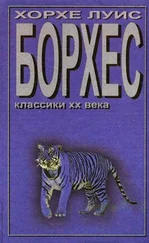Хорхе Борхес - Collected Fictions
Здесь есть возможность читать онлайн «Хорхе Борхес - Collected Fictions» весь текст электронной книги совершенно бесплатно (целиком полную версию без сокращений). В некоторых случаях можно слушать аудио, скачать через торрент в формате fb2 и присутствует краткое содержание. Год выпуска: 1999, ISBN: 1999, Издательство: Penguin (UK), Жанр: Старинная литература, на английском языке. Описание произведения, (предисловие) а так же отзывы посетителей доступны на портале библиотеки ЛибКат.
- Название:Collected Fictions
- Автор:
- Издательство:Penguin (UK)
- Жанр:
- Год:1999
- ISBN:9780140286809
- Рейтинг книги:5 / 5. Голосов: 1
-
Избранное:Добавить в избранное
- Отзывы:
-
Ваша оценка:
- 100
- 1
- 2
- 3
- 4
- 5
Collected Fictions: краткое содержание, описание и аннотация
Предлагаем к чтению аннотацию, описание, краткое содержание или предисловие (зависит от того, что написал сам автор книги «Collected Fictions»). Если вы не нашли необходимую информацию о книге — напишите в комментариях, мы постараемся отыскать её.
Collected Fictions — читать онлайн бесплатно полную книгу (весь текст) целиком
Ниже представлен текст книги, разбитый по страницам. Система сохранения места последней прочитанной страницы, позволяет с удобством читать онлайн бесплатно книгу «Collected Fictions», без необходимости каждый раз заново искать на чём Вы остановились. Поставьте закладку, и сможете в любой момент перейти на страницу, на которой закончили чтение.
Интервал:
Закладка:
I remembered reading once that the best place to hide a leaf is in the forest. Before my retirement I had worked in the National Library, which contained nine hundred thousand books; I knew that to the right of the lobby a curving staircase descended into the shadows of the basement, where the maps and periodicals are kept. I took advantage of the librarians' distraction to hide the Book of Sand on one of the library's damp shelves; I tried not to notice how high up, or how far from the door.
I now feel a little better, but I refuse even to walk down the street the library's on.*
Afterword
Writing a foreword to stories the reader has not yet read is an almost impossible task, for it requires that one talk about plots that really ought not to be revealed beforehand. I have chosen, therefore, to write an afterword instead.
The first story once more takes up the old theme of the double, which so often inspired Stevenson's ever-happy pen.
In England the double is called the fetch or, more literarily, the wraith of the living; in Germany it is known as the Doppelgänger. I suspect that one of its first aliases was the alter ego. This spectral apparition no doubt emerged from mirrors of metal or water, or simply from the memory, which makes each person both spectator and actor. My duty was to ensure that the interlocutors were different enough from each other to be two, yet similar enough to each other to be one. Do you suppose it's worth saying that I conceived the story on the banks of the Charles River, in New England, and that its cold stream reminded me of the distant waters of the Rhône?
The subject of love is quite common in my poetry; not so in my prose, where the only example is " Ulrikke ." Readers will perceive its formal affinity with " The Other ."
" The Congress " is perhaps the most ambitious of this book's fables; its subject is a company so vast that it merges at last into the cosmos itself and into the sum of days. The story's murky beginning attempts to imitate the way Kafka's stories begin; its ending attempts, no doubt unsuccessfully, to ascend to the ecstasy of Chesterton or John Bunyan. I have never merited such a revelation, but I have tried to dream of it. In the course of the story I have interwoven, as is my wont, certain autobiographical features.
Fate, which is widely known to be inscrutable, would not leave me in peace until I had perpetrated a posthumous story by Lovecraft, a writer I have always considered an unwitting parodist of Poe. At last I gave in; the lamentable result is titled " There Are More Things. "
" The Sect of the Thirty " saves from oblivion (without the slightest documentary support) the history of a possible heresy.
"The Night of the Gifts" is perhaps the most innocent, violent, and over-wrought of these tales.
" The Library of Babel ," written in 1941, envisions an infinite number of books; " ' Undr ' " and " The Mirror and the Mask " envision age-old literatures consisting of but a single word.
"A Weary Man's Utopia" is, in my view, the most honest, and most melancholy, piece in the book.
I have always been surprised by the Americans obsession with ethics; "The Bribe" is an attempt to portray that trait.
In spite of John Felton, Charlotte Corday, and the well-known words of Rivera Indarte ("It is a holy deed to kill Rosas") and the Uruguayan national anthem ("For tyrants, Brutus' blade"), I do not approve of political assassination. Be that as it may, readers of the story of Arredondo's solitary crime will want to know its dénouement.
Luis Melián Lafinur asked that he be pardoned, but Carlos Fein and Cristóbal Salvañac, the judges, sentenced him to one month in solitary confinement and five years in prison. A street in Montevideo now bears his name.
Two unlucky and inconceivable objects are the subject of the last two stories. " The Disk " is the Euclidean circle, which has but one face; " The Book of Sand ," a volume of innumerable pages.
I doubt that the hurried notes I have just dictated will exhaust this book, but hope, rather, that the dreams herein will continue to ramify within the hospitable imaginations of the readers who now close it.
J. LB.
Buenos Aires, Februarys, 1975

August 25, 1983
I saw by the clock at the little station that it was past eleven. I began walking through the night toward the hotel. I experienced, as I had at other times in the past, the resignation and relief we are made to feel by those places most familiar to us. The wide gate was open; the large country house itself, in darkness.
I went into the vestibule, whose pale mirrors echoed back the plants of the salon. Strangely, the owner did not recognize me; he turned the guest register around for me to sign. I picked up the pen chained to the register stand, dipped it in the brass inkwell, and then, as I leaned over the open book, there occurred the first of the many surprises the night would have in store for me—my name, Jorge Luis Borges, had already been written there, and the ink was not yet dry.
"I thought you'd already gone upstairs," the owner said to me. Then he looked at me more closely and corrected himself: "Oh, I beg your pardon, sir. You look so much like the other gentleman, but you are younger."
"What room is he in?" I asked.
"He asked for Room 19," came the reply.
It was as I had feared.
I dropped the pen and hurried up the stairs. Room 19 was on the third floor; it opened onto a sad, run-down sort of terrace with a park bench and, as I recall, a railing running around it. It was the hotel's most secluded room. I tried the door; it opened at my touch. The overhead light still burned. In the pitiless light, I came face to face with myself. There, in the narrow iron bed—older, withered, and very pale—lay I, on my back, my eyes turned up vacantly toward the high plaster moldings of the ceiling.
Then I heard the voice. It was not exactly my own; it was the one I often hear in my recordings, unpleasant and without modulation.
"How odd," it was saying, "we are two yet we are one. But then nothing is odd in dreams."
"Then ..." I asked fearfully, "all this is a dream?"
"It is, I am sure, my last dream." He gestured toward the empty bottle on the marble nightstand. "You, however, shall have much to dream, before you come to this night. What date is it for you?"
"I'm not sure," I said, rattled. "But yesterday was my sixty-first birthday."
"When in your waking state you reach this night again, yesterday will have been your eighty-fourth. Today is August 25, 1983."
"So long to wait," I murmured.
"Not for me," he said shortly. "For me, there's almost no time left. At any moment I may die, at any moment I may fade into that which is unknown to me, and still I dream these dreams of my double... that tiresome subject I got from Stevenson and mirrors."
Читать дальшеИнтервал:
Закладка:
Похожие книги на «Collected Fictions»
Представляем Вашему вниманию похожие книги на «Collected Fictions» списком для выбора. Мы отобрали схожую по названию и смыслу литературу в надежде предоставить читателям больше вариантов отыскать новые, интересные, ещё непрочитанные произведения.
Обсуждение, отзывы о книге «Collected Fictions» и просто собственные мнения читателей. Оставьте ваши комментарии, напишите, что Вы думаете о произведении, его смысле или главных героях. Укажите что конкретно понравилось, а что нет, и почему Вы так считаете.
